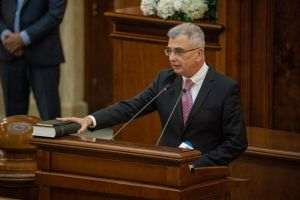Yesterday, the European single currency gained slightly against the dollar on the international markets, after the managing director of the International Monetary Fund (IMF), Dominique Strauss-Kahn, decided to resign.
At 10.15, on the New York market, the Euro was quoted at 1.4273 dollars, up 0.2% over the previous day.
On Wednesday night, the IMF announced the resignation of Dominique Strauss- Kahn, charged with sexual assault, attempted rape and unlawful imprisonment.
"I deny all the charges brought against me with the greatest possible firmness. I want to dedicate all my strength, my time and energy to prove my innocence", said Strauss-Kahn, in his resignation letter. The former official of the Fund stressed: "I want to protect the institution that I have served with honor and devotion".
Strauss-Kahn, who is being held in the prison of Ryker"s Island, New York, has been subjected to increasing pressure to hand in his resignation over the last few days.
John Lipsky, the First Deputy Director of the IMF, appointed as the interim replacement of Strauss-Kahn, will represent the institution at the G8 summit which will take place at the end of May, in Deauville, in North-Western France.
• Olli Rehn: The head of the IMF needs to be familiar with the European economy
Knowledge of the European economy is a "useful qualification" for any candidate to the position of the Managing Director of the IMF, according to European Commissioner for Economic and Monetary Affairs, Olli Rehn.
He said yesterday: "It is essential for the managing director of the IMF to be chosen based on value and competence. It would be a quality if the individual appointed for this position had knowledge on the European economy".
The former head of the Fund was considered as having in-depth knowledge of the issues of the Eurozone.
Strauss-Kahn has been a central figure in the Eurozone over the last year, having brought about a significant contribution to the efforts to solve the debt crisis. Last year, the IMF concluded foreign financing agreements with Greece and Ireland, and recently agreed to participate in the aid package intended for Portugal. Strauss-Kahn raised the value of emergency loans approved by the Fund from 58.7 million dollars in 2006, to over 91 billion dollars in 2010, and convinced the G20 to triple the financial resources available to the IMF.
The competition for the leadership of the IMF pits Europe against the major emerging economies. The European officials are trying to keep their seat at the top of the IMF. On the other hand, the major emerging economies want the election of the managing director of the IMF to reflect the power and influence gained over these past few years by countries such as India or China, which, after the financial crisis, have become the engines behind the economic growth of the world.
The most highly rated candidate for the position of director of the IMF is French Finance and Economy Minister, Christine Lagarde, supported by her Swedish peer, Anders Borg. At the same time, the governor of the Dutch Central Bank, Nout Wellink, proposed the president of the ECB, Jean-Claude Trichet as a potential candidate.


















































